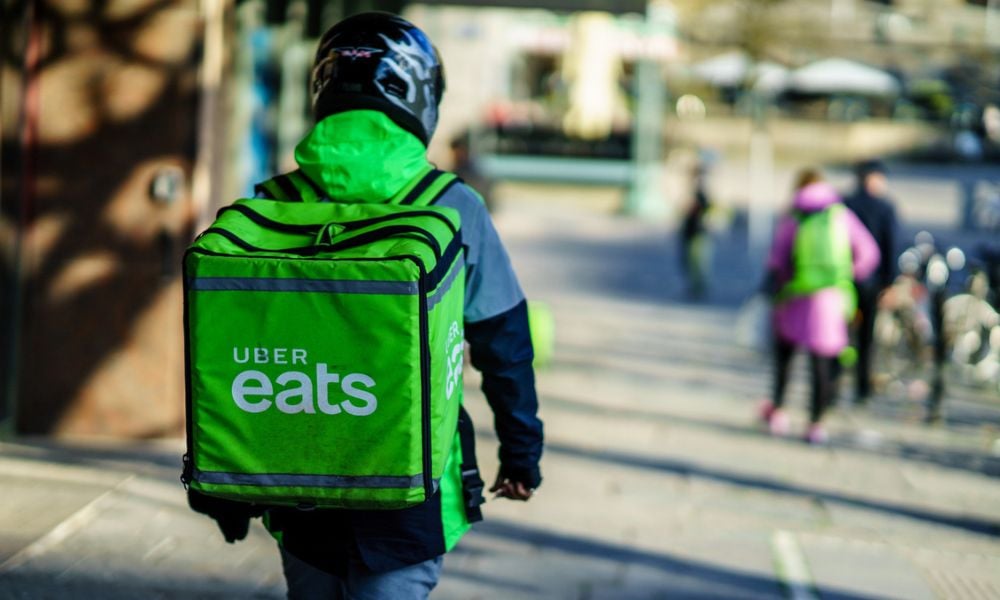
Case involves classification of UberEats drivers as independent contractors

Uber must face a lawsuit filed by an UberEats driver back in 2019 as there’s nothing in a unique California law that prevents the worker from pursuing his legal case, the California Supreme Court ruled on Monday.
UberEats driver Erik Adolph did not give up his right under state law to sue on behalf of a large group of workers even though he signed an agreement to bring his own work-related legal claims in private arbitration, the court unanimously ruled, according to a Reuters report published on Yahoo! Finance.
Adolph sued Uber in 2019, claiming the company misclassified UberEats drivers as independent contractors rather than employees. He claims these drivers must be reimbursed for work expenses under California law.
In 2021, UberEats overhauled its business model and changed its contracts with delivery drivers amid growing pressure over the status of workers. The change would make it easier for the company to classify riders and drivers as independent contractors, rather than employees – an issue that has been challenged in court on several occasions.
Under the Private Attorney General Act, or PAGA, workers can sue for employment law violations on behalf of the state and keep one-quarter of any money they win. The rest goes to the state to fund an agency that enforces labor laws.
Nothing in that law prevents workers from pursuing claims on their own behalf in arbitration while separately litigating large-scale claims in court, the court said, according to the Reuters report published on Yahoo! Finance.
More than half of private sector, nonunion U.S. workers are required to sign arbitration agreements as a condition of employment. And the agreements typically bar them from filing or participating in traditional class action lawsuits, according to the report.
In 2020 however, the Fair Work Commission in Australia ruled that drivers who deliver food through online service UberEats are to be considered independent contractors – not employees of the company – owing to the flexibility of their work arrangement.
Michael Rubin, who represents Adolph, said the ruling could spur companies to reconsider forcing workers' claims into arbitration if large-scale PAGA lawsuits can still proceed in court.
While the decision may be considered a win for workers, employers expressed concerns about its possible repercussions, according to the Reuters report.
The ruling conflicts with the Viking River decision and violates a federal law that requires enforcing valid arbitration agreements, claimed Theane Evangelis, a lawyer for Uber.
"We are considering our appellate options," she said.
A 2022 U.S. Supreme Court ruling involving Viking River Cruises said that companies could force individual PAGA claims into arbitration.
Several groups – including the U.S. Chamber of Commerce – filed briefs in Monday's case, telling the California Supreme Court that a ruling against Uber could encourage workers to file meritless lawsuits and pressure companies to settle them.
However, those concerns should be directed at state legislators, who have the power to change the law, the court said.
In February this year, Uber drivers across New Zealand initiated their first-ever collective bargaining agreement with the service- and ride-hailing giant in a bid to hike wages and improve working conditions.